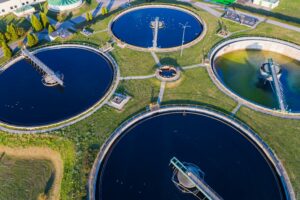AFO Opening Memo
AFO Permit Opening Memo – Memorandum In Support of Assateague Coastal Trust’s Petition for Judicial Review – October 27, 2020
Case Summary: Animal Feeding Operation (“AFO”) is a term used to generally describe a facility where up to hundreds of thousands of animals are kept. There are more than 500 AFOs in Maryland. These facilities have been subject to regulation under the federal Clean Water Act (“CWA”) for decades in recognition of their significant impact on our nation’s water quality. A modern AFO can produce more waste than a large city and requires a sophisticated permitting process to properly manage and regulate that magnitude of waste. The poultry industry produces tens of millions of pounds of ammonia (a form of nitrogen) each year, in Maryland alone. To date, this source of nitrogen emissions, and its delivery to state waters and the Chesapeake Bay, have gone unregulated.
Maryland’s definition of “Waters of the State” is substantially broader than the federal definition of “Waters of the United States” and the more expansive state law definitions for key terms like “discharge,” “pollutant,” “waste,” “industrial waste,” and “Waters of the State,” leave no doubt that ammonia is a source of water pollution subject to the state’s discharge permitting requirement.
Arguments: (1) Key definitions established in Maryland’s Water Pollution Control (“WPC”) laws cover gaseous substances such as ammonia as a water pollutant subject to regulation; (2) The Maryland Department of the Environment (“MDE”) erred by failing to require effluent limitations for the control of ammonia emissions in the general discharge permit for AFOs; and (3) MDE erred by failing to include water quality-based effluent limitations to protect waters, like the Chesapeake Bay, that are so polluted that they have been designated as “impaired” by MDE.
Legal Theories: (1) Maryland’s WPC laws define a “pollutant” as “[a]ny waste or wastewater that is discharged from … [a]n industrial source; or [a]ny other liquid, gaseous, solid, or other substance that will pollute any waters of this State.” This definition is extraordinarily broad and would include ammonia, a well-recognized water pollutant under state and federal law.
(2) Chicken waste, like other poultry and livestock waste, releases ammonia gas, which is “blown away” through high-powered ventilation fans. Because ammonia, after discharge, deposits on waters and watersheds as a form of the pollutant nitrogen, it has been recognized by the Chesapeake Bay Program as a major contributor of nitrogen pollution to the Bay and Maryland’s extensive list of other nitrogen-impaired waters. Under both state and federal law, the discharge pollutants to waterways is illegal unless it is permitted. Therefore, MDE’s omission of controls on a well-known pollutant that constitutes one of the largest waste streams generated by an AFO is arbitrary and capricious and contrary to statutory requirements.
(3) State and federal law require water quality-based effluent limitations where technology-based limits are insufficient. Even the EPA’s Permit Writer’s Manual for AFOs clearly envisions the inclusion of water quality-based effluent limitations for AFO permits. Because the EPA, which administers the less stringent provisions under federal law, directs its permit writers to establish water quality-based effluent limitations for AFOs located in nutrient-impaired watersheds, there is no doubt that MDE must as well.



